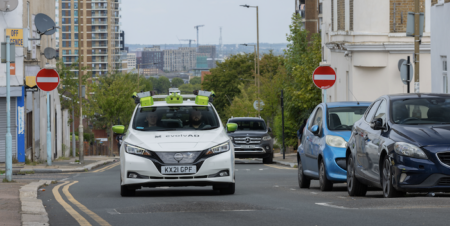Volvo Cars has announced that it intends to begin what it describes as “the UK’s most ambitious autonomous driving trial”. The event will take place next year with the aim of speeding up the introduction of autonomous driving technology.
The Swedish car manufacturer is pioneering the development of autonomous driving (AD) systems globally as part of its commitment that no one will be seriously injured or killed in a new Volvo by the year 2020.
“Autonomous driving represents a leap forward in car safety,” said Håkan Samuelsson, president and chief executive of Volvo Cars. “The sooner AD cars are on the roads, the sooner lives will start being saved.”
Volvo’s UK-based test will be called ‘Drive Me London’ and will differentiate itself from other AD programs by using real families driving AD cars on public roads. The event will begin in early 2017 with a limited number of semi-autonomous driving cars and the expand in 2018 to include up to 100 AD cars.
Volvo will source its data from these everyday users and use this data to develop AD cars that are suitable for real-world driving conditions, which its experts believe will be superior to data sourced from test tracks. UK-based vehicle safety body, Thatcham Research, will be providing the technical data analysis and any professional test drivers needed as part of the trial.
“Vehicle manufacturers are predicting that highly autonomous vehicles, capable of allowing the driver to drop ‘out of the loop’ for certain sections of their journey, will be available from around 2021. Without doubt, crash frequency will also dramatically reduce. We’ve already seen this with the adoption of Autonomous Emergency Braking (AEB) on many new cars. Research in the US by NHTSA predicts that by 2035, as a result of autonomous and connected cars, crashes will be reduced by 80%. Additionally, if a crash unfortunately can’t be avoided, then the impact speed will also drop as a result of the system’s performance – reducing the severity of the crash,” said Peter Shaw, chief executive of Thatcham Research.
“There are multiple benefits to AD cars,” added Samuelsson. “That is why governments globally need to put in place the legislation and infrastructure to allow AD cars onto the streets as soon as possible. The car industry cannot do it all by itself. We need governmental help.”




